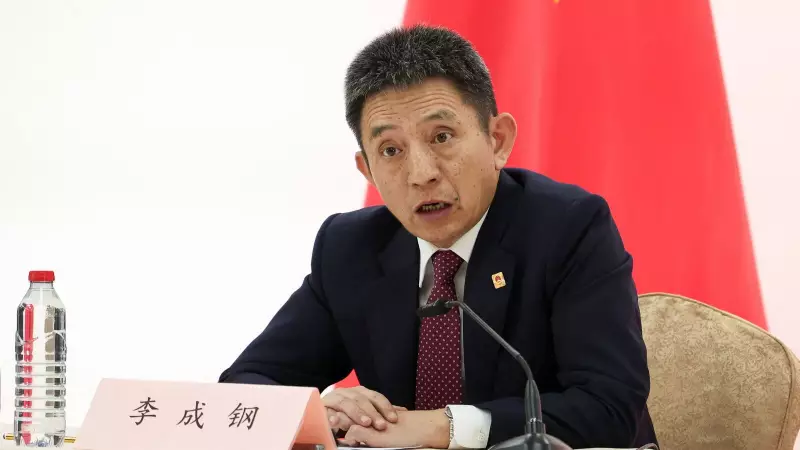
In a significant diplomatic reshuffle that signals escalating trade hostilities, China has abruptly removed its top World Trade Organization negotiator Li Chenggang from his position in Geneva. This unexpected move comes precisely when Beijing and Washington are locked in an intensifying tariff battle that threatens global economic stability.
Sudden Diplomatic Exit Amid Trade Firestorm
Li Chenggang, who served as China's permanent representative to the WTO since 2021, has been recalled to Beijing according to multiple diplomatic sources. The timing is particularly noteworthy as it coincides with the recent imposition of substantial tariffs by both economic superpowers.
The trade war escalation began when the United States announced sweeping tariff increases on Chinese imports, including a staggering 100% duty on electric vehicles. This aggressive move prompted immediate retaliation from Beijing, which imposed its own counter-tariffs targeting American automotive and agricultural products.
What This Diplomatic Shakeup Means for Global Trade
Trade experts view Li's removal as more than routine diplomatic rotation. His departure suggests several critical developments:
- Strategic repositioning of China's approach to multilateral trade negotiations
- Hardening stance towards Western trade policies and the WTO framework
- Preparation for prolonged trade conflict with the United States and allies
- Internal restructuring of China's economic diplomacy apparatus
The Escalating Tariff Battle: Key Developments
The current trade confrontation represents the most serious economic standoff between the two nations in recent years. The Biden administration's new tariffs specifically target what it calls "unfair trade practices" in strategic sectors:
- Electric vehicles facing 100% import duties
- Solar panels and semiconductors with 50% tariffs
- Steel and aluminum products with 25% duties
- Battery components and critical minerals with significant increases
China's response has been equally forceful, hitting back with targeted tariffs on American exports while accusing the US of violating WTO principles and international trade norms.
Implications for India and Global Supply Chains
For India, this escalating trade war presents both challenges and opportunities. As Western companies seek to diversify supply chains away from China, India stands to benefit from increased manufacturing investments. However, the broader disruption to global trade patterns could impact export-dependent sectors across emerging economies.
The removal of a seasoned negotiator like Li Chenggang suggests China is preparing for a different kind of trade engagement—one that may rely less on multilateral institutions and more on bilateral arrangements and economic statecraft.
As the trade war intensifies, global markets are watching closely for signs of whether this diplomatic reshuffle will lead to further escalation or create opportunities for renewed negotiations. What remains clear is that the rules-based international trading system faces one of its most severe tests in decades.





